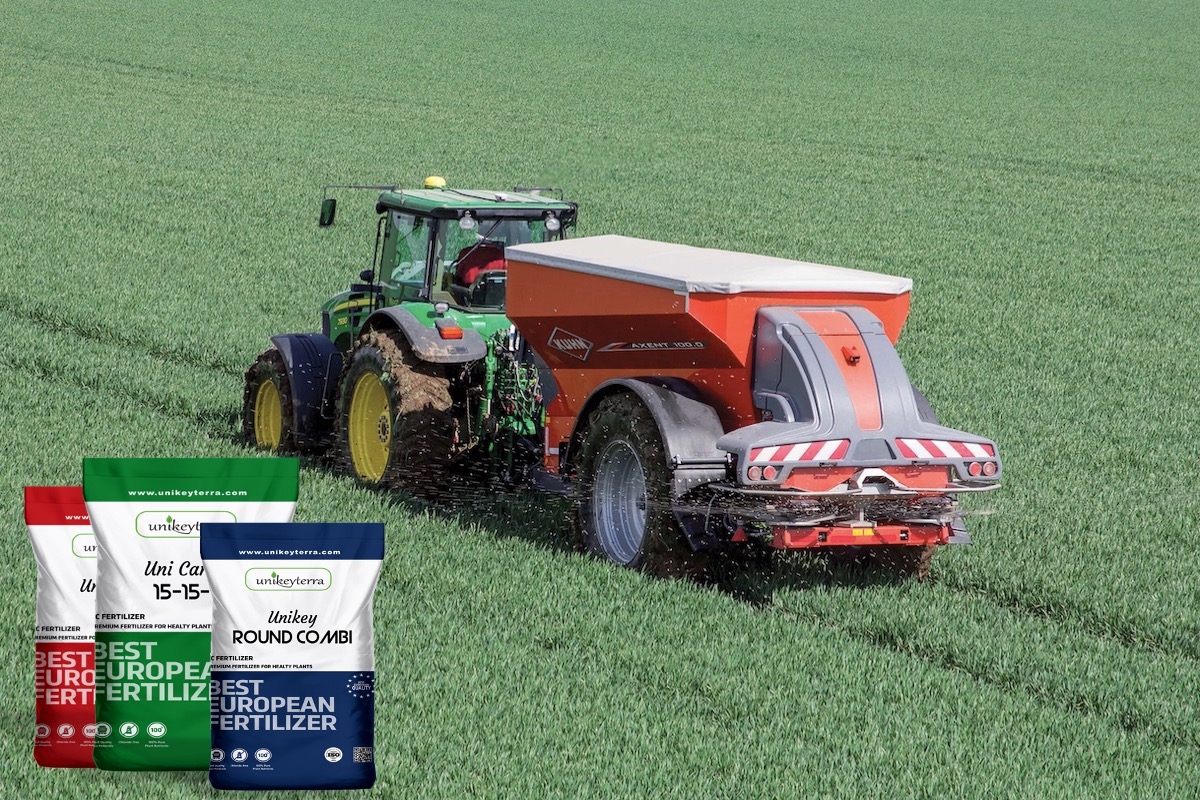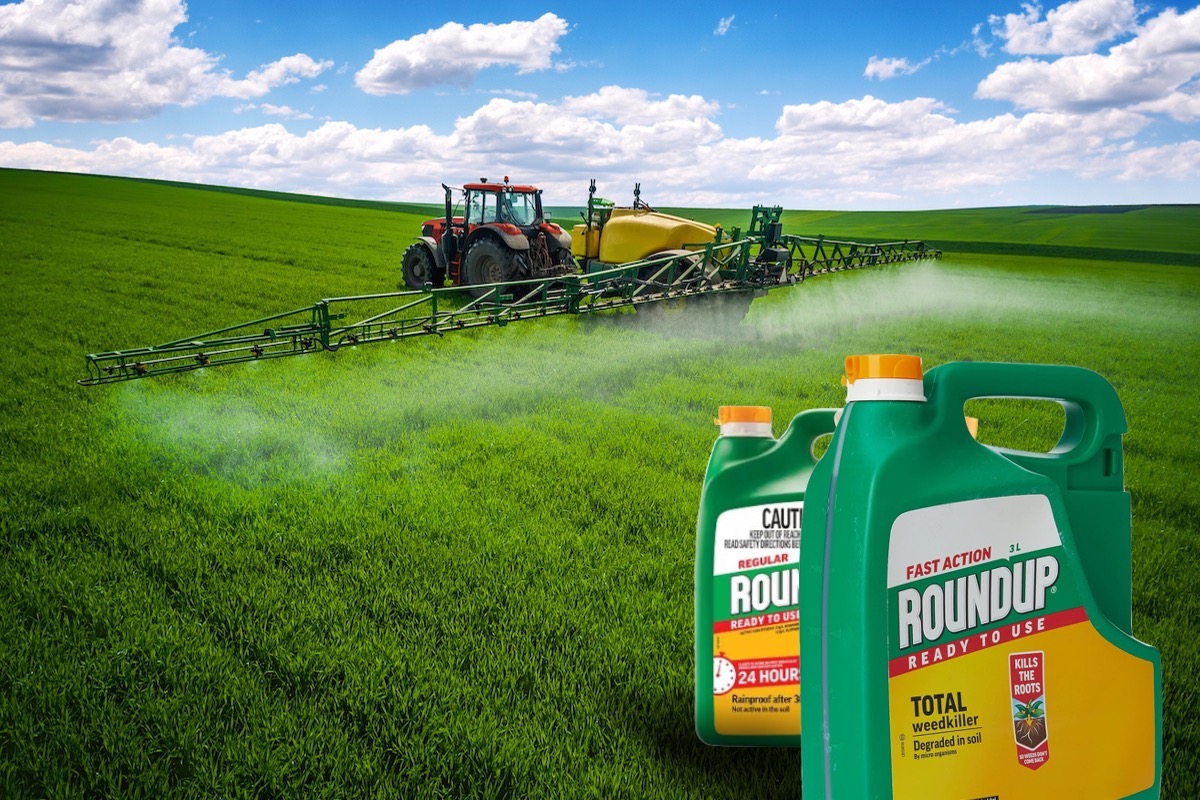AGRICULTURE AND ALLIED INDUSTRIES

Agriculture & Allied Activities
Agriculture is one of the largest and most important business industries in the world, contributing up 4% globally and in some least-developed countries, it can account for more than 25% of GDP. Agriculture mainly encompasses crop and livestock production, including dairy, poultry, aquaculture, fisheries (pisciculture), honey production (apiculture), forestry, and water and soil conservation. It provides about one-quarter of all global employment, more than half in sub-Saharan Africa and almost 60% in low-income countries. MDACI / MDACI CONSORTIUM helps you sustainably develop your Agribusiness and Agricultural Industry to full mechanization and bankability, providing the best equipment and most advanced solutions. The main economic development burden of sub-Saharan Africa and low-income countries is the absence of mechanized agriculture.

What We Do For You
MDACI / MDACI CONSORTIUM is committed to helping you develop your Agribusiness and Agricultural Industry to full mechanization and bankability, providing the best equipment and most advanced solutions for your sustainable economic growth. On mdacapitalinvest.com, global business produces studies and discoveries provided with accurate information and data that help you better understand the current and future development conditions and business trends of the Agricultural industry. Are you an agribusiness company , agriculture associations, government agency, researchers, and students in the agricultural business sector? Then, browse through our high-quality products and services developed from original analysis, creative thinking to solve Agricultural business challenges.
AGRICULTURE, CHALLENGES AND SOLUTIONS
Agriculture is the practice of growing crops, livestock, fish, trees, and other living organisms for food or other products. Agriculture has a long history, with humans beginning to farm plants about 11,000 years ago.
Agriculture and Agribusiness
Agribusiness is a combination of the words "agriculture" and "business". It refers to commerce in farming and farming-related activities, covering the production, processing, and distribution of farm-based goods. Companies in the agribusiness industry comprise all aspects of food production.
Agribusiness encompasses the economic sectors for farming and farming-related commerce. It involves all the steps for getting agricultural goods to the market, including production, processing, and distribution. The industry is a traditional part of any economy, especially for countries with arable land and excess agricultural products for export.
Challenges of Agribusiness
Countries with a large farming sector face constant pressure from global competition. Products such as wheat, corn, and soybeans are commodities that are similar wherever they are grown, making one's area's product easily replaceable by another's if it can get to market at a lower price. Remaining competitive requires agribusinesses to operate more efficiently, often involving investments in new and smart technologies, new ways of fertilizing and watering crops, and new ways of bringing goods into the global market.
Global prices of agricultural products can change rapidly, making crop planning complicated. Farmers may also have less arable land to work with as suburban and urban areas expand into the farm regions.
Climate change is perhaps the greatest common challenge for agribusinesses worldwide. It is one of the industries most affected by and also involved in propelling climate change. Estimates vary widely but nevertheless show the depth of the challenge: agribusiness worldwide accounts for about 17% of the world's greenhouse gas emissions, helping to drive the rise in global temperatures.
At the same time, agribusiness is also heavily impacted by the volatility in average temperatures and rainfall, as well as extreme weather. Heat waves, droughts, extreme storms, and wildfires (all exacerbated by climate change) can cause damage to crops and threaten livestock. Rising temperatures can threaten growing conditions for crops and could limit production in many regions, while the growing global population is increasing the demand for food. As of today, 10 June 2024, the rise in temperature and extreme heat in Africa have almost detroyed more than the third of production of Cocoa, meaning that the price of Chocolate will become more expensive.
All this represents a major challenge for agribusinesses, which face pressure to adopt more sustainable production methods. Finding ways to reduce emissions and adapt to a changing climate will be key to future success.
MDACI's Solution Offerings for the Agriculture Industry
MDACI / MDACI CONSORTIUM is committed to providing the most advanced and highest-quality solutions for sustainable economic growth of your agricultural and farming business, including:
-
- Developing your agribusiness to bankability and financeability, including allied business activities such as food processing plant, wood processing plant and-all.
- Modernizing your agribusiness to full mechanization with advanced, trendy and smart equipment and tools.
- Helping you access funds and invest in modern farming techniques.
- Fostering collaboration between governments and communities.
- Providing the best solutions for the development strategy of your products, customer relationship managments, market intelligence support and business research reports and performance strategy, etc.
- Empowering smallholder farmers.
- Adopting climate-smart practices.
- Supplying inert solvents, co-solvents, and colours for crop protection.
- Providing the best fertilizers, micronutients and the right seed treatment solutions to achieve optimal yield and high-quality of your crops business. Micronutrients are produced to act as plant nutrition and provide healthy growth and yield of a plant.
- Supplying advanced, smart, high-quality and safe agricultural and farming technologies, equipment and tools, including greenhouse supplies, landscape and hardscape equipment and tools, netting and fencing equipment and accessories, indoor growing and hydroponics supplies, gardening equipment, growing and propagating supplies, composting and vermiculture supplies and homestead products.
- Securing crop, soil and water testing supplies, including many other laboratory equipment and accessories.

Industrial Real Estate
Discover our wide range of modern, trendy and stylish decoration and decor items, inluding accesoories for your home, office, hotel, spa, restaurant anf cafeteria, and many more at unbeatable prices, Browse through and get the best deals now.

Commercial Real Estate
The right marketplace for high-quality Building Materials, including Bamboo Flooring, Bricks, Ceramic tiles, and-all you need for the renovation or the construction of residential, commercial and industrial properties at great prices. Shop now.

Engineering, Technologies & Equipment
We offer a wide selection of the best Building Equipment and Tools you need for the construction or renovation of residential, commercial and industrial properties at unbeatable prices. Browse in and get the best deals
Register and start selling Worldwide |
||||||
|
Let us much you with our global Sales Talent of allmday.com, the global business development and sales platform of MDACI / MDACI CONSORTIUM. We sell, market and make your products and services reach million of Buyers worldwide. Are you ready to go global and effectively increase your sales? Then register with us and start selling worldwide at almost no cost.
|
||||||
FREQUENTLY ASKED QUESTIONS
What Is Agriculture?
Agriculture is the practice of cultivating natural resources to sustain human life and provide economic gain. It combines the creativity, imagination, and skill involved in planting crops and raising animals with modern production methods and new technologies.
Agriculture is also a business that provides the global economy with commodities: basic goods used in commerce, such as grain, livestock, dairy, fiber, and raw materials for fuel. For example, fiber is a top crop and a necessary commodity for the clothing sector.
Why Is Agriculture Important?
Providing Raw Materials
Raw materials are a core building block of the global economy. Without access to raw materials, manufacturers can't make products. Nonagricultural raw materials include steel, minerals, and coal. However, many raw materials derive from agriculture — from lumber for construction materials to herbs for adding flavor to food. Corn, for example, is used to produce foods and serves as a foundation for ethanol, a type of fuel. Another example is resins plant products used in various industrial applications, such as adhesives, coatings, and paints used in construction.
Creating a Strong Supply Chain
Importing and exporting goods such as agricultural products requires shipping methods such as ocean freight, rail, and trucking. Delays in shipping agricultural products from a Los Angeles port can create problems in China, and vice versa, impacting the global supply chain.
For example, sales of soybean crops from Iowa External skyrocketed in 2021 due to various factors including delays in South American crop shipments, according to the Iowa Soybean Association. In this example, Iowa benefited from a competitive standpoint. However, delays in shipping crops could also be detrimental to regions expecting shipment, limiting availability of products on store shelves and affecting livelihoods.
Encouraging Economic Development
Agriculture impacts global trade because it's tied to other sectors of the economy, supporting job creation and encouraging economic development. Countries with strong agricultural sectors experience employment growth in other sectors, according to USAID. Countries with agricultural productivity growth and robust agriculture infrastructure also have higher per capita incomes, since producers in these countries innovate through technology and farm management practices to boost agricultural productivity and profitability.
Resources on the Importance of Agriculture
The following resources provide information about the importance of agriculture as a source of raw materials and its impact on transportation and contribution to economic development.
How Is Agriculture Important?
Agriculture also plays a central role in meeting consumer and business market demand in a world with interconnected economies. Here are different types of products derived from agriculture.
Fruits and Vegetables
Fruits and vegetables are essential sources of fiber, proteins, and carbohydrates in human diets. Vitamins, such as A, C, and E, and minerals, such as magnesium, zinc, and phosphorus, are naturally occurring in many fruits and vegetables. In addition to health benefits, fruits and vegetables add flavors to the human palette.
Animal Feed
Some fruits and vegetables are grown to provide feed for animals, from poultry to livestock. The American Industry Feed Association reports that about 900 animal feed ingredients are approved by law in the U.S. These include ingredients that come from agricultural production, including hay, straw, oils, sprouted grains, and legumes.
Natural Rubber Production
The number of vehicles in the world is more than 1.4 billion, according to Hedges & Company market research. Every single one runs on rubber tires. According to GEP, the top rubber-producing countries are Thailand, Indonesia, and Malaysia – collectively representing approximately 70% of global natural rubber production – and about 90% of suppliers are small-scale farmers.
Cotton for Clothing
From cotton to clothes, the journey starts with agricultural production. Cotton is grown, harvested, and then processed, spun, and woven into fabric before it becomes a piece of clothing. Cotton production encompasses an expansive global supply chain, and according to Forum for the Future, it's a leading commodity, making up approximately 31% of all textile fibers globally.
Biofuels
The U.S. Environmental Protection Agency (EPA) reports favorable economics of biofuels, produced from biomass sources including agricultural products such as corn, soybeans, sugarcane, and algae. The benefits include reduced greenhouse gas and pollutant emissions and the potential for increased incomes for farmers. However, biodiesel production requires the use of land and water resources that can affect food costs.
Industrial Products
Bio-based chemistry involves using raw materials derived from biomass to develop industrial products. Different industrial products derived from bio-based chemicals include bioplastics, plant oils, biolubricants, inks, dyes, detergents, and fertilizers. Bio-based chemicals and products offer an alternative to conventional products derived from petroleum products. Bio-based chemistry is considered a type of green chemistry because it promotes the reduction of environmental impacts in industrial production.
Pharmaceutical Products
For thousands of years, humans have turned to plants to help treat what ails them. For example, ginger, a plant root typically consumed in tea, can help aid digestion. Substances derived from plants and herbs can also help in healthcare. For example, extracted chemicals from the foxglove plant are used for digoxin, a drug used for heart failure. Another example is polylactic acid (PLA), a chemical produced when glucose is fermented into lactic acid in green plants. PLA has applications in tissue engineering, cardiovascular implants, orthopedic interventions, cancer therapy, and fabrication of surgical implants, according to a study published in Engineered Regeneration.
How Does Agriculture Affect the Economy?
Agriculture can have a significant effect on the economy. For instance, the U.S. Department of Agriculture (USDA) Economic Research Service reports that agricultural and food sectors provided 10% of all U.S. employment in 2020 – nearly 20 million full- and part-time jobs. Additionally, the USDA reported that cash receipts from crops totaled nearly $198 billion in 2020. Animal and animal product receipts weren't far behind in 2020, totaling $165 billion.
The interdependence of the food and agriculture sector with other sectors, including water and wastewater systems, transportation systems, energy, and chemical, makes it a critical engine for economic activity, according to the Cybersecurity and Infrastructure Security Agency (CISA).
Agriculture also impacts economic development by contributing to the overall U.S. gross domestic product (GDP), directly and indirectly. It does so through farm production, forestry, fishing activities, textile mills and products, apparel and food and beverage sales, and service and manufacturing.
-
- Farm production. The latest USDA data on farming and farming income report the U.S. had a little over 2 million farms, encompassing 897 million acres, in 2020. Farm production includes producing fruits, vegetables, plants, and varieties of crops to meet demand for agricultural products throughout the country and abroad.
- Forestry and fishing activities. Agricultural activities include forestry and harvesting fish in water farms or in their natural habitat. Agroforestry focused on "establishing, managing, using, and conserving forests, trees and associated resources in a sustainable manner to meet desired goals, needs, and values," according to the USDA. A form of fishing activity known as aquaculture involves the production of fish and other sea animals under controlled conditions to provide food.
- Textile mills and products. The S. cotton industry produces $21 billion in products and services annually, according to the USDA. The industry has created various employment roles, such as growers, ginners, and buyers working on farms and in textile mills, cotton gins, offices, and warehouses.
- Apparel, food and beverage sales. Since agriculture is a business, selling products made from agricultural production is essential. A key aspect of the sales component in agriculture is to help growers build capacity and understand the market dynamics to meet the needs of customers, many of whom care deeply about Food services and eating and drinking places accounted for 10.5 million jobs in 2020, the largest share among all categories within the agriculture and food sectors, according to the USDA.
- Manufacturing. Agricultural products contribute to the manufacturing of a huge variety of goods, including food and beverage products, textiles, cleaning and personal products.
Why Is Agriculture Important for the Future?
What does the property warranty do not cover?
These are, for example:
-
- defects in items, their parts or accessories that were not included in the original delivery.
- material defects or defects caused by work performed by someone other than the contractor,
- defects arising from the use of the housing unit for non-residential purposes,
- defects caused by improper handling,
- normal wear.
How do you proceed with a complaint?
What must be stated in the complaint?
When reporting your complaint, please indicate the followings in order to meet the requirements of the processing standards:
-
- the date of the detected defect.
- the detailed description of the defect, including any photo documentation of the defect, using the form below.
- the name and address of the project, including street, unit number or place in the building and the exact location of the defect.
- the proposal of the most suitable date for a visit.
- contact (mobile phone or landline and e-mail) to confirm a possible visit for repair..
What happens if the owner does not cooperate with the contractor?
In the event that the property owner refuse to cooperate or does not provide the necessary data and information to the Project Developer (MDAICReal) for the adequate assessment and removal of the claimed defect as for instance by not allowing our technical team to access the unit within a maximum period of Sixty (60) days from the effective date of notification of the defect. In this case, the right to remove the defect shall unfortunately expires.
AGRICULTURE INDUSTRY INSIGHTS
-

Market & Business Reports
Become more professional
Before contacting one of agents of your preference in your area, answer the questions by filling and sending our official request.
-

Dictionary of Agriculture
Understand the industry better
Browse through our global residential, commercial and industial property sale plaform, and learn more about the international.
-

Blogs and News
Business Ideas and trends
When it comes to selling the finished properties, there's a balance that needs to be maintained between achieving the highest sales.

Our Approach
Countries with a large farming sector face constant pressure from global competition. Products such as wheat, corn, and soybeans are commodities that are similar. Countries with a large farming sector face constant pressure from global competition. oybeans are commodities that are similar. Countries with a large farming sector face constant pressure from global.

Our Strategy
Countries with a large farming sector face constant pressure from global competition. Products such as wheat, corn, and soybeans are commodities that are similar. Countries with a large farming sector face constant pressure from global competition. oybeans are commodities that are similar. Countries with a large farming sector face constant pressure from global.
REACH OUT TO OUR EXPERTS
-
Nicolas COUDENE

 United StatesPROFILE: .Languages: French, English and Spanish.
United StatesPROFILE: .Languages: French, English and Spanish.The property warranty is designed to cover the quality both residential and non-residential units, as well as the common areas of the building where the unit is located. The complaints procedure also applies to the technologies.
-
Marcel DIONE

 United StatesPROFILE: .Languages: French, English and Spanish.
United StatesPROFILE: .Languages: French, English and Spanish.The property warranty is designed to cover the quality both residential and non-residential units, as well as the common areas of the building where the unit is located. The complaints procedure also applies to the technologies.
-
Emeka Bryan NWANKWO

 United StatesPROFILE: .Languages: French, English and Spanish.
United StatesPROFILE: .Languages: French, English and Spanish.The property warranty is designed to cover the quality both residential and non-residential units, as well as the common areas of the building where the unit is located. The complaints procedure also applies to the technologies.
ALL INDUSTRIES
 AGRICULTURE & ALLIED INDUSTRIES
AGRICULTURE & ALLIED INDUSTRIES
 AUTOMOTIVE INDUSTRY
AUTOMOTIVE INDUSTRY
 AEROSPACE & DEFENCE INDUSTRY
AEROSPACE & DEFENCE INDUSTRY
 CONSUMER GOODS & SERVICES
CONSUMER GOODS & SERVICES
 ELECTRICAL POWER INDUSTRY
ELECTRICAL POWER INDUSTRY
 ENERGY & MINING INDUSTRY
ENERGY & MINING INDUSTRY
 ENGINEERING & TECHNOLOGY
ENGINEERING & TECHNOLOGY
 FOOD & BEVERAGE INDUSTRY
FOOD & BEVERAGE INDUSTRY
 HEALTHCARE & BEAUTY
HEALTHCARE & BEAUTY
 HIGH-TECH MANUFACTURING
HIGH-TECH MANUFACTURING
 INDUSTRIAL MANUFACTURING
INDUSTRIAL MANUFACTURING
 LIFE SCIENCE INDUSTRY
LIFE SCIENCE INDUSTRY
 LOGISTICS & SUPPLY CHAIN
LOGISTICS & SUPPLY CHAIN
 PHARMACEUTICAL INDUSTRY
PHARMACEUTICAL INDUSTRY
 TELECOMMUNICATIONS & ICT
TELECOMMUNICATIONS & ICT
 WATER & SANITATION
WATER & SANITATION






